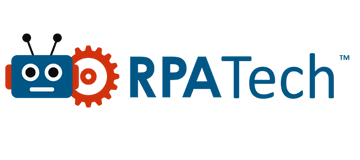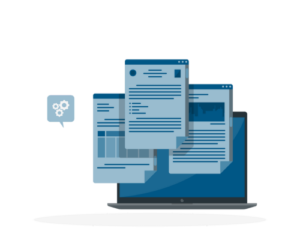The administrative functions in the education industry, to name a few, such as admission, scheduling of events, filling up of a form, report making, and more, are the operations that are monotonous and repetitive. These tasks not only eat up significant time but also leave you drained. The heaps of papers piling up in the administrative department is a common sight in educational institutions.
Today, educational institutions – schools and colleges – face an interesting dilemma. They wonder whether they should focus on educating their students, which is their primary duty, or spend time finishing that tedious paperwork that gets piled-up every once in a while.
Teachers and administrators waste a significant amount of their time behind paperwork, namely filling grade sheets, marking attendance, planning, scheduling class events, and others. With this, teachers get caught up in a whirl of unnecessary activities rendering them from performing their primary role, which is to give undivided attention to students and educate them.
Such manual functions in administration can be automated using Robotic Process Automation. Adoption of RPA in education sector will help the educational institutions achieve efficiency, accuracy and productivity across all administrative processes and will make those heaps of papers disappear.
Robotic Process Automation (RPA) can be a reliable and efficient employee for handling iterative activities. It will not only allow more time at hand for teachers and administrators, but it will also reduce expenses, improve productivity, and increase work quality.
Moreover, universities and schools can get things done without hassle even if they have less staff to execute monotonous activities. With RPA installed, teachers or professors can dedicate most of their time to discovering novel ways to impart education. They no longer will have to worry about marking attendance manually. Also, they can constantly focus on devising methods that can make learning easier for students.
Top 7 RPA Use Cases in Education
Robotic Process Automation (RPA) is constructive for the educational sector in various ways. Below is a list of the top 7 RPA use cases in education.
1. Attendance Management
With automation in the education sector, managing and marking attendance can be done with closed eyes. Managing and marking the attendance of students and staff on a daily and weekly basis is dreary.
However, RPA for the education sector makes it easier for teachers and administrators to mark attendance, prepare reports with 100% accuracy, and forward those reports to the concerned authorities.
The bots read the records and send a meeting request to parents of students if the attendance falls below a certain percentage. Staff members can receive their monthly detailed attendance report with 0% error.
2. Preparing Grade Sheets
RPA for the education sector also helps in the automation of preparing students’ grade cards. Once teachers have assessed students’ answer sheets during the examination, they manually add marks on grade sheets, consuming a lot of time.
However, by using automation in the education sector, teachers or professors can fill each student’s scores on a system. Then final grade sheets can be automatically generated at a later stage as required.
Additionally, RPA comes equipped with Machine Learning (ML) capabilities. Thus, implementing RPA in the education sector is also helpful in checking answers submitted by students.
3. Analogous queries
Universities and schools receive many queries from students, staff members, parents, and website visitors at admission, examination, or other events. Usually, the response to many of those queries is identical. Therefore, these common responses are prospective candidates for automation.
Robotic Process Automation (RPA) uses Natural Language Processing (NLP) and Artificial Intelligence (AI) to train robots to respond to such queries or their variations with the same level of efficiency and accuracy. Therefore, RPA can save considerable costs on human resources to manage customer queries.
Consequently, automation in the education sector can improve customer experience by providing automated answers to analogous inquiries. It will save the energy of customer executives, who can now resolve unique situations where the customer is only willing to converse with the customer representative or when a new inquiry is raised from the customer’s end.
4. Scheduling Events and Meetings
RPA in the education sector also helps in automating arranging meetings and events using the existing meeting schedulers. Universities do not have to invest in any form of CRM or ERP system for such activity.
RPA can operate all types of Windows applications the same as humans. For instance, it can read an email from a student about meeting requests, check the professor’s calendar to find the available slot, book the meeting, and send a confirmation email of the scheduled appointment to the student and professor.
5. Student Registration
Like an employee, RPA in educational institutions and universities caters to organizational activities. It can collect students’ data, verify their eligibility for the preferred program, receive registration fees, complete the registration process, and send a confirmation email to students and the university registrar.
Also, it can perform all sorts of activities as expected from a human, such as offering students to select an alternative program based on their grades, shortlist candidates for a particular program, and others.
6. Staff Hiring and Payroll Management
Implementing RPA in the education sector also helps in clearing the irrelevant CVs and shortlist the required applications. After shortlisting the applications, the bots send a confirmation email and schedule a meeting for interviews.
It can also recommend the interviewer an appropriate pay range for the candidate based on their experience, qualification, and industry norms.
Furthermore, automation in the education sector also helps assess the attendance of existing staff members and determine their eligible payment for a given month. Besides, it can release payment to staff without any need for intermediaries.
7. Vendor Management
Universities and schools procure various items from local vendors such as educational accessories, food items, stationaries, sports equipment, and more.
So, automation in the education sector can successfully handle the vendors in scenarios, such as whether there is a need to release the payment for old orders or to place new orders based on the estimated requirement of the university.
Robotic Process Automation can also help manage the demand of various items needed within the university premise by studying the past consumption data. RPA can also assess if any obsolete goods need replacement.
Summing up
Till now, you must have caught on to the points of interest of RPA for the education sector. So, consider Robotic Process Automation (RPA) to be your best employee. By remaining behind the scenes and working 24*7 without burning out, RPA can prove to be a boon for the educational sector. It possesses the potential to transfigure processing within universities and schools.
If you are responsible for handling administrative activities in a school or university, you should consider RPA to automate internal processes. Activities that your staff complete in a week may get done in a few hours. Noteworthily, unlike human employees, RPA does not take breaks or go on leave. It works tirelessly, day and night, to deliver what you expect.
Spread this piece of information with your employees to make them aware of RPA in the education sector.
How to implement RPA in the education sector?
If you want to explore this new turf, then step further and consult our RPA consultants at RPATech. Our consultants have years of experience architecting and implementing state-of-the-art automation systems for various clients across several industries. Please send us an email at [email protected] or calling us on (+91) 8010-369-369 to schedule a meeting today. Book a free demo NOW!






